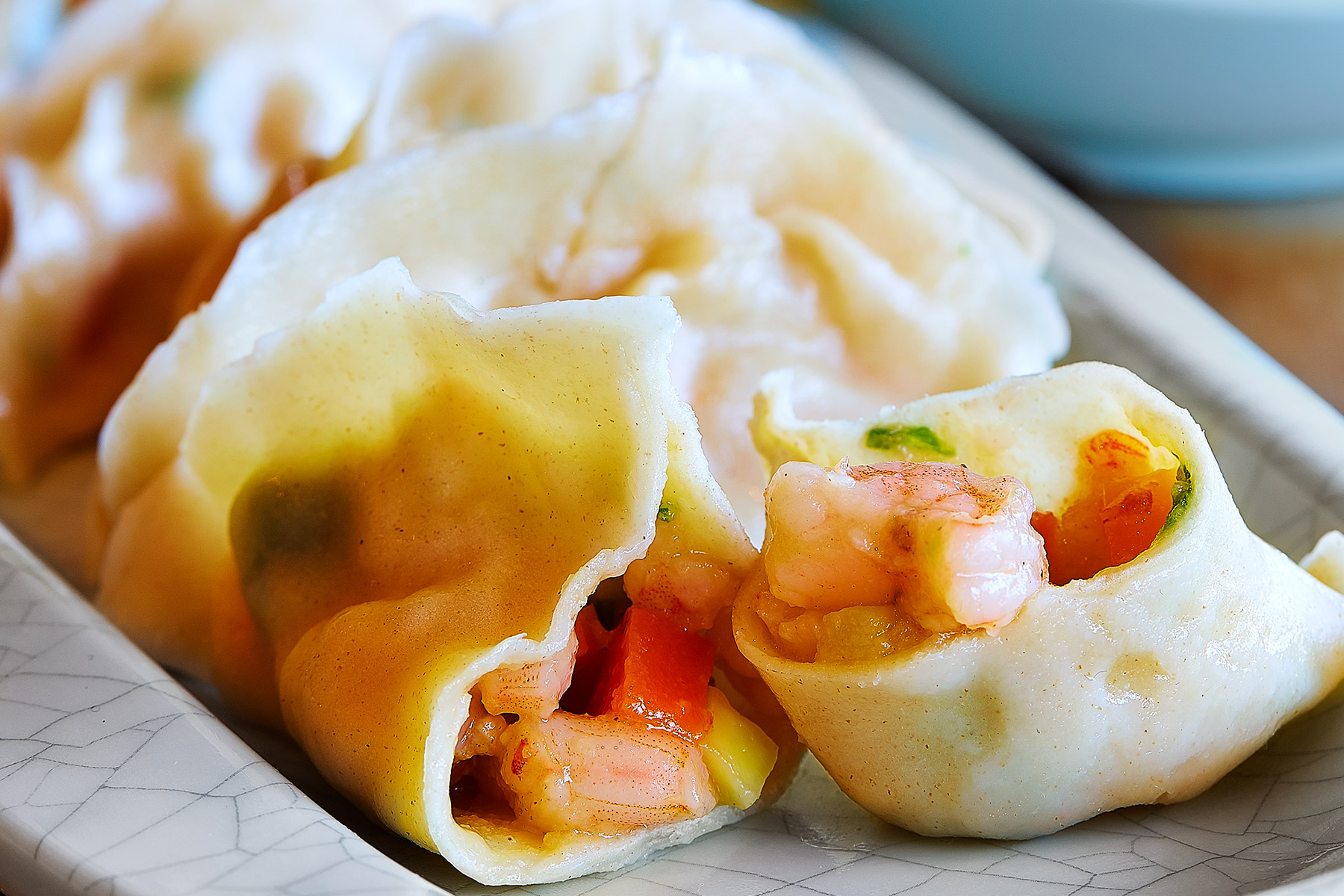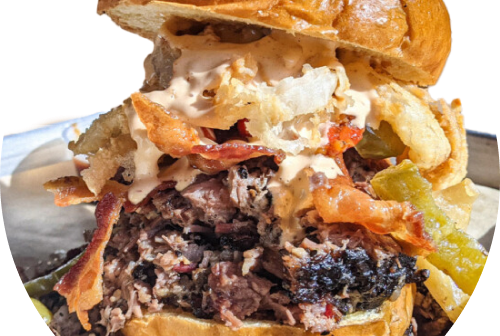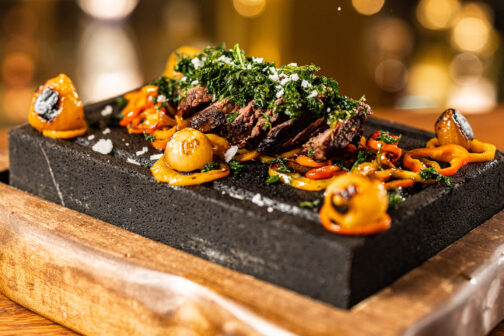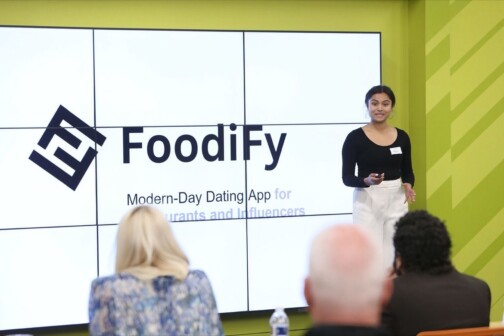For the final installment of our Q&A series for Asian American Pacific Islander Heritage Month, SideDish spoke with June Chow, the co-owner of Hello Dumpling in East Dallas. Previous Q&As, which spotlight people of AAPI heritage in the food industry, included Vi Henderson, the owner of Mac & Cream, Dallas food content creator Violet Huynh, and chef Nimidu Senaratne of SpicyZest Sri Lankan Fusion.
Chow is Chinese, and she opened Hello Dumpling in 2017 after she realized she and her husband needed to put her kids through college. She grew up in the restaurant business; her mom also opened a restaurant to put Chow and her siblings through school.
At Hello Dumpling, Chow says she grew up with what she serves now: handmade dumplings, pan-fried or boiled, and made-from-scratch noodles drenched in sauce or swirled in soup. A second location opened last year on the fringe of Lake Highlands on Walnut Hill.
This interview has been lightly edited for clarity.
Where did you learn to cook dumplings and noodles?
June Chow: My mother. I would come home and my mother would be making dumplings. It’s very traditional in Chinese households. A lot of the people who are of my generation would go to school, come home and find their parents sitting at the kitchen table rolling out the dough, making the dumplings, or making noodles.
Mine was predominantly dumplings because my mother is from northern China, and in northern China, the principle diet was made up of things that were made from wheat flour. The primary crop grown in northern China is wheat, so people up north ate dumplings, breads, noodles. Anything made with wheat, that was their go-to.
My mother, when she immigrated to the United States, she made dumplings for us. And back then—we were on the East Coast—you didn’t go to eat dumplings outside at restaurants, you made dumplings at home. That’s what I experienced.
And so in watching her, I learned the concept of dumpling making and of noodle making. In my adult life, I’ve observed and I’ve learned how to sort of tweak these recipes. It’s so ubiquitous. It’s like, everybody in China knows how to make dumplings from scratch, it becomes something that you just do.
Do dumplings symbolize anything to you?
Dumplings symbolize a lot. They’re little treasures. They’re things that really represent comfort food and home. There’s a saying I have on my wall at my Walnut Hill location. There’s a banner that shows a proverb, and it’s something that my mother used to say. The belief is that when you leave your home—so you’re going on a trip—you eat dumplings, and then when you come home you eat noodles.
Dumplings represent blessings for a safe journey, like when you leave. They sometimes resemble little feet, so it’s symbolic in that way. And then noodles: there’s a saying that says “long noodles, long life.” So when you come home, you eat long noodles. So both noodles and dumplings are very much good things—good luck things—to eat. During the holidays, especially during the Lunar New Year, families will eat dumplings and noodles.
In what ways does being of AAPI descent impact or affect your work?
I just am—it is my community, so I can’t hide from it. I’m part of the community, it’s my work, it’s all wrapped in. I feel like this is true to my experience.
Hello Dumpling often partners with a lot of different communities for events or fundraisers. Why do these matter to you?
I feel like in this day and age, my values have become marginalized in many, many ways. I feel there are a lot of people out there who feel their points of view, their opinions, their ethics are marginalized. We need to stand up and be unified.
I’m an immigrant. There’s no changing that. I serve food that is from a country that is not this—it doesn’t originate from this country. But I’m more American than I am Chinese. I don’t read or write Chinese. I came to this country when I was four. Unfortunately, no matter what people think when they look at me—and I look Chinese or Asian—I am more like them than not. But obviously, I am Chinese. My entire life, I’ve fully integrated my culture and mixed it in with where I live now. I’ve tried to maintain my culture, my legacy, here.
I think for me, it’s important that you recognize that there are all these other people out there just like me. There are plenty of people who come from other cultures who have very, very, very similar experiences. And I think it’s so important to support that. It’s so important. I may not be personally gay or trans or religious in any way, but I certainly feel like from a humanitarian way, we’re all pretty much striving for the same thing. I’m acutely sensitive to people who are suffering from things that are going on that wrong them in the most prejudicial way.
My mother always raised me to be strong. I have to voice my opinion. I always felt the need to stand up for what’s right. We were open two years before the pandemic hit, and then we were just kind of hitting our stride. Then this happens, and then you have to sort of backpedal, but you just have to shift your attention. Not only did I have to introduce to my community that my food is not as foreign as they think, I felt I needed to defend who I am and where I come from.
There are people who love Chinese food, people who appreciate diversity and culture. I’m probably not going to get those who feel differently. They might go get whatever their preferred food is. I didn’t feel there was a whole lot of backlash. I think it’s important for us in the AAPI community to keep a presence and keep being unified. We need to stick together.
What’s the best part about what you do?
The best part is introducing people to something that’s so delicious. I mean, food is so important to me, and I love all sorts of food. I try to travel only to places that have great food. And when my friends travel, I beg them to send me pictures of new food. I think it’s a great equalizer. It’s a great unifier. What I think I bring to people is joy through their bellies. That’s it. That brings me a lot of happiness. It brings me a lot of happiness because I think it’s the language that we share. That is just the most joyous thing.
What’s your favorite dish on the menu?
Oh my gosh, you cannot ask me that! Everyone asks me that, and I’m like, “I don’t have a favorite dish.” I don’t. Every single one has a little story to it. My best story is actually my fish dumplings. My mom grew up in the east on the coast of China, and where she grew up there, there were fish dumplings. I didn’t know about that until really when I was an adult.
In China, the most common filling would be pork, so when you ask for dumplings, it’s mostly pork. And so I didn’t know about fish dumplings really until much later. It really hit home when we actually traveled to China. We went back to my mom’s home province and we had fish dumplings. Then on another trip, probably 10 years ago, we went to a city where we had literally the best fish dumplings I’ve ever eaten. The fish dumplings are a story for me—it connects me to my mom, to her home, what she grew up with. My fish dumplings, I think about her when I eat them. It’s not my favorite, it’s just the thing that I’m closest to.
Find Hello Dumpling at 1146 Peavy Rd. and 8041 Walnut Hill Ln., Ste. 815.
Author







